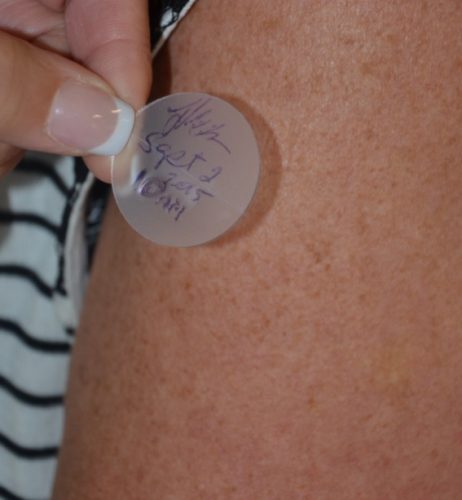Dr. Hugh Taylor (SM ’83) sort of wound up becoming Chief of Obstetrics at a prominent hospital. Taylor remarks that he was always interested in science, but he still didn’t necessarily expect to end up going to medical school, spend an additional four years in a laboratory, and rise through the ranks to become the Chief of Obstetrics and Gynecology at Yale-New Haven Hospital and the Anita O’Keeffe Young Professor of Obstetrics, Gynecology, and Reproductive Sciences. Even once he entered medical school, he certainly didn’t expect to choose gynecology as his specialty. Taylor’s path was by no means completely pre-determined, but he ended up exactly where he needed to be—a reassuring reminder to millions of concerned pre-medical candidates that arbitrary chance and fate, as volatile and uncertain as they seem, can be a good thing.
Taylor, like many other doctors and surgeons, grew up interested in science and in people. His path towards becoming a physician-scientist began at Yale, where a campus culture that strongly centered on community involvement empowered him to commit to a life of public service. “I think the responsibility that comes with a Yale education is important,” Taylor said. For him, that responsibility compelled him to join a laboratory during residency to learn more about using laboratory research to help patients.
Now in addition to seeing patients, performing some of his field’s most difficult surgeries, and leading his department, Taylor runs a laboratory that examines the underlying mechanisms of endometriosis, a disease in which the mucous membrane lining the uterus that thickens during the menstrual cycle becomes displaced. The experience has been a long haul and a long-term investment—an overwhelming workload with little financial incentive—but he maintains that it is well worth the outcome. “As a doctor, I get immediate, personal feedback that my work is helping an individual. And as a scientist, I get to impact a much wider audience,” Taylor said.
Taylor’s desire to benefit his community through his work also influenced his decision to specialize in gynecology. During medical school, Taylor was interested in several different medical specialties, but gynecology stood out as an area in which clear progress could be made. “I considered internal medicine, but OB-GYN was extremely exciting,” he said. “There were so many unsolved issues, and I saw some clear opportunities for research.”
When it comes to reproductive health, the truth is that the United States is lagging behind the rest of the world. “It’s amazing that despite the United States’ status as one of the most developed nations, our country still has one of the highest rates of complications associated with pre-term delivery of babies in the world,” Taylor said. Taylor’s laboratory has been prolific in its efforts to close the gap; his laboratory has identified a group of stem cells in the uterus that have been linked to endometrium growth. They can be extracted with a simple office biopsy, a procedure that removes a small amount of tissue, and induced to develop into insulin-producing cells, cartilage, and neuronal cells. Taylor recently completed a four-year long study that found that when compared to a placebo and oral estrogen treatments, the transdermal estrogen replacement patch results in greater increased sexual function. However, transdermal hormone replacement therapy can still cause adverse side-effects. Consequently, Taylor emphasizes that the treatment of sexual dysfunction, like the treatment of any condition, should be modified specifically to each patient’s needs. “It’s all a part of a general effort in medicine, whether it be cancer or gynecology, to personalize therapy to deliver optimal results,” Taylor said.
Taylor may have not have entered Phelps Gate with a definitive plan, but he was still able to embark on a medical career spanning the lab bench, patient care centers, and hospital conference rooms. “You should think big and dream,” he said. “It’s a big world, and there are a lot of opportunities in medicine to make the world a better place.”
References
[1] Interview with Hugh Taylor, Yale University School of Medicine, interview on 2/2/18
[2] “Sex and the Estrogen Pill,” Jenny Blair, Yale Alumni Magazine, Nov/Dec 2017 [https://yalealumnimagazine.com/articles/4602-sex-and-the-estrogen-patch]
[3] “Effects of Oral vs Transdermal Estrogen Therapy on Sexual Function in Early Postmenopause: Ancillary Study of the Kronos Early Estrogen Prevention Study (KEEPS),” Taylor et. al, JAMA Internal Medicine, October 2017 [https://jamanetwork.com/journals/jamainternalmedicine/fullarticle/2652573?resultClick=1]
[4] “Treatment of Endometriosis-Associated Pain with Elagolix, an Oral GnRH Antagonist,” Taylor et.al, New England Journal of Medicine, July 6, 2017 [https://www.nejm.org/doi/full/10.1056/NEJMoa1700089]

